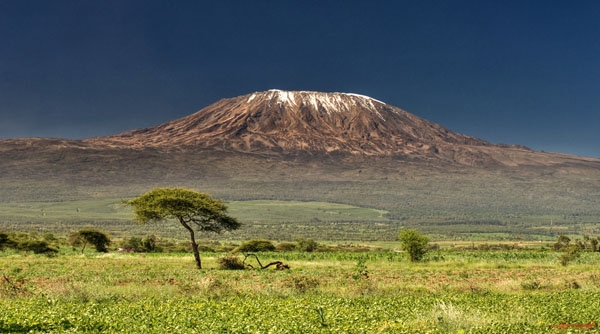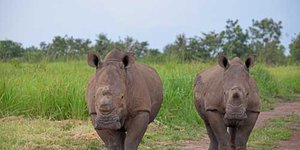Like this article?
Go on, give it a kudu!

Published on August 23 2013
Written by:
Alex Raza
2096 views
In a bid to acquire more revenue from the tourism industry, Tanzanian members of parliament have passed several new tax hikes and a Tourism Development Levy (TDL), during this year's annual financial budget meeting in July. The changes have been slammed by stakeholders and investors in the sector as “unnecessary” with the potential of harming the industry, but the government stated that it was necessary for the country to utilize the full potential of its tourism sector.
The tax hikes have been added on alcoholic and soft drinks, fuel and other services commonly used by travelers to the East African nation. TDL has been imposed exclusively on hotels and lodgings, and it will come in effect as of 1st September this year. It will require all hotels to charge their clients an extra 2 percent a day - approximately $1 per tourist per day depending on the hotel - in addition to their normal rates, to be collected by the Tanzanian Revenue Authority at the end of every month.
In addition to the tax hikes and new levy, the government has also raised the minimum wage for hotel workers and security personnel by 55 percent and 46 percent respectively. These changes will force hotels and lodges to drastically increase their rates, a move which could be unfavorable to potential travelers.
The government justified the new changes by saying the additional revenue was needed for the Tanzania Tourism Board to function more effectively. Some members of parliament stated that while the nation may rank as the number one safari destination in Africa, there was a need to create more effective marketing campaigns to target countries with potential travelers.
Tanzania's current annual marketing budget stands at $10 million, and this is mainly used for advertising in North America and Europe. With more funds the Tanzania Tourism Board will be able to advertise in untapped markets in Asia, the Far East and South America.
Critics of the new levy and tax hikes have stated that Tanzania's hotel industry is already “over-taxed”, particularly when compared to the tourism industry in other East African countries like Kenya and Rwanda. While the hotel industry is not entirely against the changes, the Hotel Association of Tanzania (HAT) feels that the introduction of TDL and the new tax hikes could have been handled with a better approach.
HAT is one of the most vocal critics of the new changes. In a statement released on its website, the organization stated that TDL was introduced without proper consultation with prominent stakeholders in the industry. In fact, the new levy was announced without prior warning by the natural resource minister at an industry stakeholder meeting in Dar es Salaam on April 4th this year. The levy will formally come into effect in September of this year, giving hotels a very small time frame to incorporate the changes into their current rates.
HAT also stated that government should have required hotels to share the burden imposed by the changes with tour operators, airline companies, and park authorities, that way, hotels would not have to change their rates and tourist would not need to feel the pinch. It should have also given hotels at least a year for preparation before allowing TDL to come into effect. HAT further stated that the government should fix the levy for the next five years to allow it to be more readily accepted, and a supervisory board should be created to track the funds and ensure that they are being used for their intended purpose.
Tanzania is not the only East African nation to pass controversial tax laws. Uganda recently introduced Value Added Tax (VAT) on all services offered in the tourism industry. Uganda's VAT is 18 percent, which means the rates offered for services to tourists will increase significantly. Tanzania also planned on introducing VAT on services offered in the tourism sector, but the proposal was removed from the annual budget mainly thanks to the criticism of the Tanzania Association of Tour Operators and some key members of parliament from the Ministry of Finance.
In theory, TDL could generate more revenue for marketing the country's attractions around the world, but its introduction could have been handled more delicately. The government should have consulted key stakeholders in the sector to work out all the necessary details and a supervisory board must be created to audit the collection and use of the funds collected.
So what does all this mean for the average traveler planning a safari in the country? Nothing too serious, the rates for hotels around the country will be forced to go up sometime later this year or in the beginning of 2014 to accommodate the new changes, and the price of alcoholic beverages and other soft drinks will increase slightly. Major hotels are already circulating memos to all their potential investors and clients explaining the new changes and how it might affect the industry. Budget travelers are unlikely to feel the changes, but travelers who plan on staying in luxury hotels may need to alter their budget significantly. Contact your tour operator and hotel to find out if there are any changes to your agreed rates.
Has been on: 0 safaris
Dissident.
© Your African Safari Ltd, All rights reserved.
Your African Safari is a safari-planning and safari review site. It was created to help support a healthy African wildlife population. All reviews are vetted before being approved and only ethical tours are published

Garamba National Park—an anchor of hope in the Democratic Republic of Congo
Published on January 09 2025
By: R.W.

Namibia imposes new visa requirements
Published on July 25 2024
By: yourafricansafari.com

Do I really need travel insurance or travel protection for my safari?
Published on July 30 2024
By: yourafricansafari.com